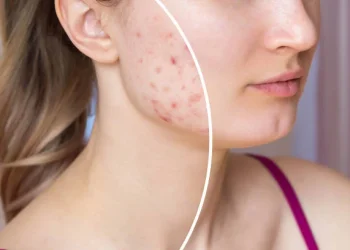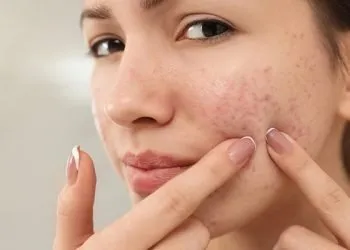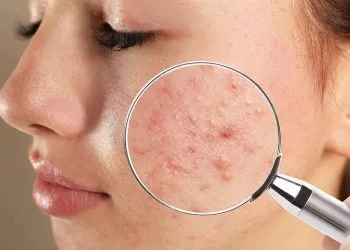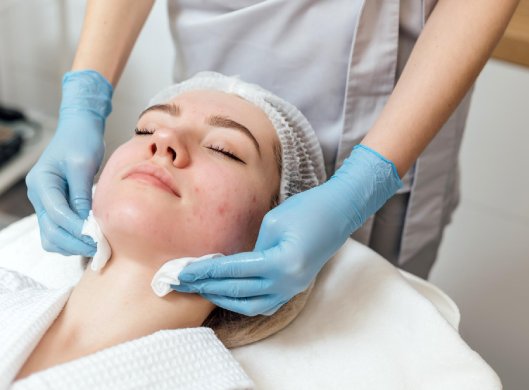


Acne Treatment
Acne treatment depends on the severity of the condition and the specific needs of the individual. It’s important to note that what works for one person may not work for another, and it may take some time to find the most effective treatment. Here are some general approaches to acne treatment:
- Topical Treatments:
- Benzoyl Peroxide: Kills bacteria, unclogs pores, and reduces inflammation. It is available over-the-counter and in prescription strength.
- Salicylic Acid: Helps unclog pores and exfoliate the skin.
- Topical Antibiotics: Prescription medications that kill acne-causing bacteria.
- Retinoids: Derived from vitamin A, they help unclog pores and promote cell turnover.
- Oral Medications:
- Antibiotics: Oral antibiotics may be prescribed for moderate to severe acne to reduce bacteria and inflammation.
- Birth Control Pills: For females, certain oral contraceptives can regulate hormones and improve acne.
- Isotretinoin (Accutane): Reserved for severe, persistent acne. It’s a potent medication with potential side effects, so it’s usually a last resort.
- Procedures:
- Chemical Peels: Exfoliate the skin and can help unclog pores.
- Laser and Light Therapy: Reduce bacteria and inflammation. Can also improve skin texture.
- Home Care:
- Gentle Cleansing: Use a mild cleanser to wash the face twice a day.
- Non-comedogenic Products: Choose makeup and skincare products that won’t clog pores.
- Avoid Picking and Squeezing: This can worsen acne and lead to scarring.
- Lifestyle Changes:
- Diet: Some people find that certain foods may trigger or worsen acne. It can be helpful to keep a food diary to identify potential triggers.
- Stress Management: Stress can contribute to acne. Practice stress-reducing activities such as exercise, meditation, or yoga.
- Professional Guidance:
- Dermatologist: If over-the-counter products are not effective, consider consulting a dermatologist for personalized advice and prescription medications.
It’s crucial to be patient with acne treatment, as results may take time. Additionally, some treatments may cause skin dryness or irritation, so it’s essential to follow the recommended usage and consult a healthcare professional if you experience any adverse effects.
“Clear, confident skin starts here—target acne at its source and reveal your natural glow.”
- Antibiotics: Oral antibiotics may be prescribed for moderate-to-severe acne to reduce bacteria and inflammation.
- Birth Control Pills: For females, certain oral contraceptives can regulate hormones and improve acne.
- Isotretinoin (Accutane): reserved for severe, persistent acne. It’s a potent medication with potential side effects, so it’s usually a last resort.


